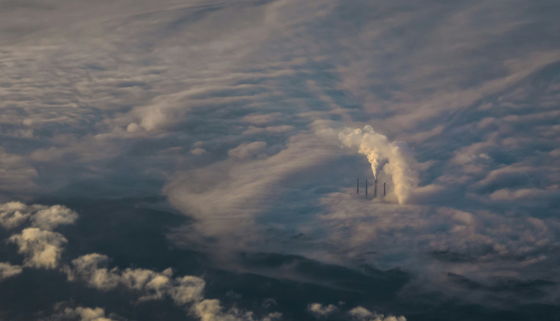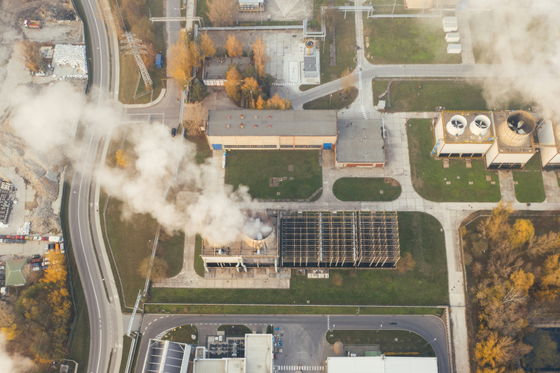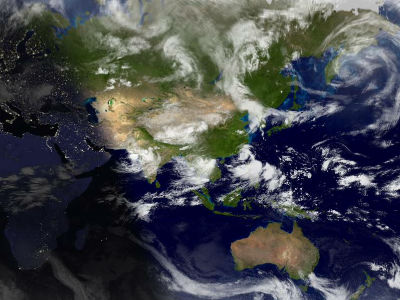US to stop sharing air quality data collected by embassies around the world as scientists express concern over Trump administration move

On Wednesday, March 5, 2025, the US State Department announced that it would no longer share air pollution data collected at its embassies and consulates with the Environmental Protection Agency's
Scientists raise concerns as the US stops sharing air quality data from embassies worldwide | AP News
https://apnews.com/article/us-air-quality-monitors-8270927bbd0f166238243ac9d14bce03

US embassies end pollution data popular in China and India
https://phys.org/news/2025-03-embassies-pollution-popular-china-india.html
The State Department's Air Quality Monitoring Program transmits data collected by U.S. embassies and consulates around the world to AirNow and other platforms, allowing scientists and experts to view and analyze air quality data from around the world. However, the State Department told the Associated Press that it would stop collecting and sharing air quality data from the Air Quality Monitoring Program.
The State Department explained that the data sharing was suspended because the Department of State shut down its infrastructure network due to a lack of funding. However, embassies and consulates have been instructed to continue monitoring air quality, and data sharing is expected to resume in the future once the funding shortage is resolved. The State Department's funding shortage is the result of budget cuts under the administration of President Donald Trump.
The State Department's air quality monitors at embassies and consulates are designed to measure concentrations of PM2.5 , a type of polluted air that can penetrate deep into the lungs and lead to respiratory disease, heart disease and premature death. The World Health Organization estimates that air pollution kills about 7 million people each year.

Scientists have said that the air quality data shared by the State Department's Air Quality Monitoring Program is reliable, enables monitoring of air quality around the world, and helps guide government agencies in cleaning up the air.
'The data provided by the State Department's air quality monitoring program was part of a small number of sensors installed in many developing countries and served as a reference for what air quality was like,' said Bhargav Krishna, an air pollution expert at
Alejandro Piracocca Mayorga, an air quality consultant based in Bogota, Colombia, said that air quality monitoring was also conducted at the US embassies and consulates in Lima, Peru, Sao Paulo and Bogota, Brazil. 'It's a real shame that the data will no longer be shared,' Mayorga said. 'This data was a valuable source of access to independent air quality information from local air quality monitoring networks.'
Khalid Khan, a Pakistan-based environmental expert, said the State Department's decision to stop sharing air quality data 'will have serious consequences.' According to Khan, in Peshawar, Pakistan, one of the most polluted cities in the world, '(the air quality data shared by the State Department) was important real-time data that helps policymakers, researchers, and the public make health decisions.' He also said, 'If the program is stopped and the air quality monitoring equipment is removed from the embassy, it will create a serious gap in environmental monitoring and deprive residents of accurate information about dangerous air conditions.'

According to the Associated Press, the State Department's air quality monitoring program has been collecting and sharing air quality data in 12 African countries, including Senegal, Nigeria, Chad, and Madagascar. Some of these countries are completely dependent on the U.S. program for their air quality data. The WHO's air quality database will also be affected by the program's end, the AP noted.
There are also cases where the US air quality monitoring program has been useful in tackling air pollution. For example, it is well known that the data provided by the US Embassy in Beijing was different from the reports published by the Chinese government. This was because the Chinese government was falsifying the current serious air pollution situation. However, the US Embassy collected and shared accurate air quality data, which led to encouraging the Chinese government to take measures against air pollution.
Raja Jahangir, environment minister for Punjab province in eastern Pakistan, noted that the province has installed its own air quality monitors so it will be able to continue to monitor air quality in the country even after the U.S. government program ends.

The end of the State Department's air quality monitoring program has also been a hot topic on the social message board Hacker News , with comments such as, ' The instruments are still there, the people operating them are still there, all they've stopped is collecting and sharing the data. This will save a small amount of money at best, so why stop it? ' and ' From the other side of the Atlantic, the United States now appears to be an empire, thinking only of itself, and happy to crush anyone who doesn't recognize and respect them as kings of the earth .'
Related Posts:
in Science, Posted by logu_ii







